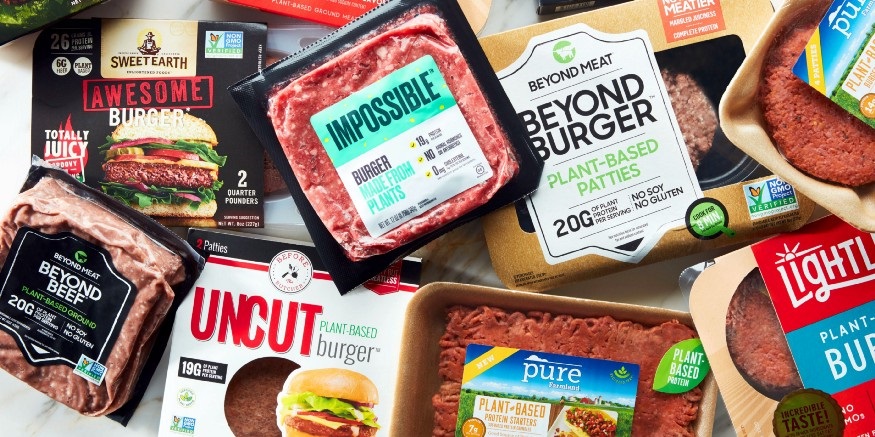
As we approach the end of Veganuary – the 31-day challenge to give up meat and go vegan – it’s worth reflecting once again on why this and other similar high-profile campaigns have such limited success. Taken purely as a numbers game, pro-vegan activists and organisations are certainly having an effect. Increasing numbers of people, many of them very young, are gradually eschewing meat, fish, and dairy in favour of vegan alternatives. Veganuary is also timed to take advantage of New Year resolutions to eat more healthily. However, when one examines the massive advertising campaigns associated with it, the problem becomes clear. From food manufacturers to supermarket chains to fast-food outlets, most if not all the products being pushed are one form or another of junk food.
Vegan activists like to characterise meat production as environmentally damaging and inherently unsustainable, and it certainly can be. However, industrialised food production in general is highly problematic and unfortunately there is no easy fix for this predicament. Break down the production cycle of any ultra-processed food – vegan included – and you will find the same litany or problems: vast, monoculture farms dependent on chemical fertilisers and pesticides, raw ingredients processed beyond recognition with artificial additives, packaging made from plastic and other materials which often cannot be recycled, and colossal transport and distribution networks which ship these food-like substances from one side of the planet to another 24/7.
So much for the environment. By concocting the present plethora of faux-meat ‘foods’, the laboratories of many major food manufacturers are simply attempting to imitate existing meat-based products of poor quality. Many of the industrial ingredients found in ultra-processed meat-based products are also found in vegan alternatives, some of which are actually higher in salt and lower in protein than their meat-based equivalents. Processed foods of all types are full of highly-engineered additives formulated by food scientists to make them addictive, stimulating the pleasure centres in your brain, releasing serotonin and dopamine, and leaving you on a sugary or salty high, but never really satisfied.
The parts of the Veganuary campaign aimed at the masses – which is most of it – have very little to say about nutrition. It’s a simple case of ‘Anything at all as long as it’s not meat!’ But the long-term effects of eating a poor diet apply to vegan alternatives just as much as to any other processed foods. Garbage in, garbage out, as the saying goes in computing. Clearly, a diet consisting of fresh, high-quality, organic fruit and vegetables is far superior to a diet heavy in processed vegan ‘food’. However, the idea that a diet reliant on vegan Frankenfoods is somehow better for you then a diet rich in fresh, high-quality, organic meat, fish, and dairy is obvious nonsense.
Attempts by major fast food chains to introduce vegan items to their menus are perhaps the most emblematic of the main issue here. A number of them have for some time been offering vegan options – McDonald’s, KFC, and Subway for example – but all suffer from the same rash of problems mentioned above. Mass-produced from ingredients which are in themselves nutritionally incomplete even before processing, the big chains’ meat-free options are often even worse for you than their familiar meaty heart-stoppers. Those already vegan by default or by dint of some small culinary tweaks (fries, onion rings, hash browns etc.) are hardly any better. We should, by the way, discount the listing of items such as coffee, bagels. and muffins as ‘vegan’ to bolster alleged green credentials. More than one chain has even gone as far as listing free sachets of sauce as among their ‘vegan’ menu offerings.
Cross-contamination is also a major issue in the processed food industry. Chickenless nuggets are often churned out by the same factories as chicken nuggets, while many fast food providers will admit that food handling and preparation within their kitchens may involve meat and meat-free items coming into contact with one another. The extent to which any of that matters, however, depends on how serious you are about actually becoming ‘vegan’.
Some of those embracing Veganuary – particularly the aforementioned young people – may be motivated by genuine concern for the future of the planet. However, whether a fleeting plant-based epiphany which may or may not extend beyond January 31st somehow equates to an emergent vegan ‘lifestyle’ is unclear. The latter tends to imply some deeper concern about ethical and environmental issues, which most major processed food manufacturers and fast food chains simply pay lip service to.
Organically-produced, locally-sourced, and in-season are already well-worn cliches when it comes to the ideal way to grow, shop, and eat. Although we’re gradually getting better at these things, most of what’s on offer in supermarkets and from fast-food outlets fails the test. And this includes all the Petri-dish products provided to meet burgeoning demand aboard the vegan bandwagon. However, beyond Veganuary or any other food fads or lifestyle trends, the sobering conclusion is that we are utterly dependent on the global industrial food production network, with its energy-intensive methods, environmental impacts, and human health consequences. This is a system that we will not easily disentangle ourselves from, Veganuary or not.
For more on the problems facing industrial civilization see my article The Long Descent — Decline and Fall of Industrial Society
